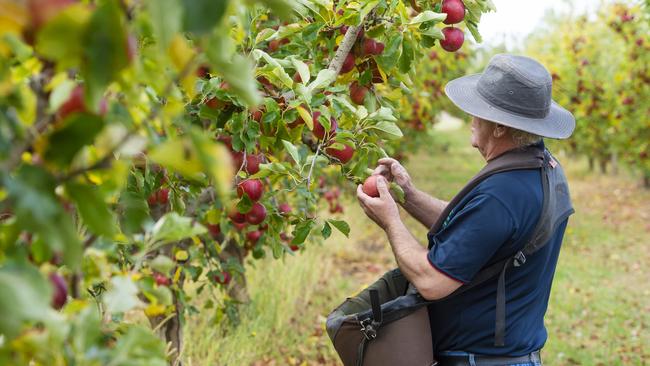Agriculture visa a bolt out of the blue - now to deliver
It was the least expected outcome from the Australia-UK free trade agreement that no one anticipated. Here’s the inside story of how the agriculture visa came to be.

“Expect the unexpected” is a useful adage to keep in mind in politics, but pulling the long-sought agricultural visa out of thin air is sleight of hand on a whole other level.
It was the least anticipated by-product of Australia’s free trade agreement negotiations with the United Kingdom.
Yet for farmers at least, it could arguably be just as beneficial as anything in the deal itself – and no one knew it was coming.
Ag industry groups had clung to a commitment Prime Minister Scott Morrison made at the National Farmers’ Federation conference in October 2018 to deliver an ag visa in the medium to long-term.
“You can’t just introduce an agricultural visa overnight and then all of a sudden everyone turns up and they’re on the farm picking fruit. That’s not how it works,” Mr Morrison said.
But nothing eventuated; evidence given to a Senate estimates hearing last year revealed no policy work had ever been done by the Government into the promised visa.
Farmer representatives were still dutifully calling for the visa, knocking on doors in halls of parliament, but it had been months, if not longer, since anyone in Government had mentioned the visa with any seriousness.
“To be honest, I think a lot of people had given up on it,” one industry source said.
“Everyone was caught off-guard.”
While agriculture was always going to be a sticking point in finalising the Australia-UK agreement, concern had largely been focused on beef quotas and animal welfare.
As the PM headed to London – mere days before the deal would be signed – the extent of the UK’s demands on working holiday-makers became clear: they wanted the 88-day farm work requirement gone.
And the Nationals saw their chance. Scrapping that requirement would leave a dent in future agricultural workforces – so their support of the Australia-UK free trade agreement became conditional on introducing an ag visa, for the UK and 10 ASEAN nations.
“If we were going to rip 10,000 workers out with no way to replace them, we were going to get crucified,” a Nationals MP said.
“This was opportunistic … and it would have been an opportunity lost if it didn’t happen.”
Agriculture Minister David Littleproud led the charge; he and now former Nationals leader Michael McCormack wrote to Mr Morrison in London with their demands, with Trade Minister Dan Tehan acting as intermediary.
Industry groups were kept in the dark until the very last moment. Some, such as the National Farmers’ Federation’s horticulture council and Australian Fresh Produce Alliance, had been asked for their agriculture visa proposals again, but none were aware of what was coming.
Nor it seems, was anyone else. Moments after the PM’s London press conference announcing the deal, Mr Littleproud jumped on social media to claim the visa win though few, if any, details were available.
Liberals MPs were left in the dark, while one industry source said he was contacted by a flat-footed department official asking: “What the hell?”
So there you go. The policy work has yet to be done, no one has been consulted, and there’s a lot of questions marks – but it turns out you can introduce an ag visa overnight after all.
The next feat, of course, will be to actually deliver it.

